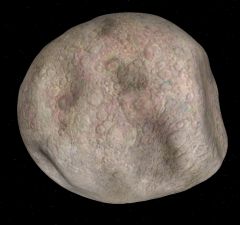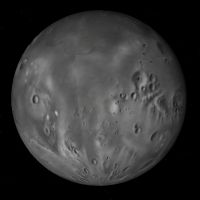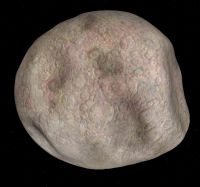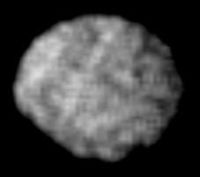Larissa
Jump to navigation
Jump to search
Larissa (Neptune VII, S/1989 N 1) is one of the inner moons of Neptune. It was discovered by Harold J Reitsema et al in September 1989. It is named after a lover of Poseidon of Greek mythology.
Larissa in Orbiter
Larissa was first introduced into Orbiter with the add-on neptune.zip in November 2002.
| Add-on | Source | Version | Author | Type | Release Date | Compatibility | Wiki article |
|---|---|---|---|---|---|---|---|
| Neptune Minor Moons | O-F Resources | 2004-12-14 | Nighthawke | Scenery | 14 December 2004 | ||
| Neptune | AVSIM | Rolf Keibel | Scenery | 7 November 2002 | |||
Larissa as seen by Voyager 2 in 1989,
from Wikimedia Commons
:
| Neptune's natural satellites |
|---|
| Named satellites:
Despina | Galatea | Halimede | Hippocamp | Laomedeia | Larissa | Naiad | Nereid | Neso | Proteus | Psamathe | Sao | Thalassa | Triton Numbered Satellites: |
| See also: Pronunciation key | rings of Neptune |
| edit The Solar System | |
|---|---|
| Central star |
Sun (Sol) |
| Planets |
Mercury - Venus - Earth - Mars - Jupiter - Saturn - Uranus - Neptune |
| Natural satellites |
Moon - Phobos - Deimos - Io - Europa - Ganymede - Titan - more... |
| Add-ons |
Planets - Dwarf Planets - Small objects - Natural satellites - Alternative star systems |
 | This natural satellite related article is a stub. You can help Orbiterwiki by expanding it.
|



